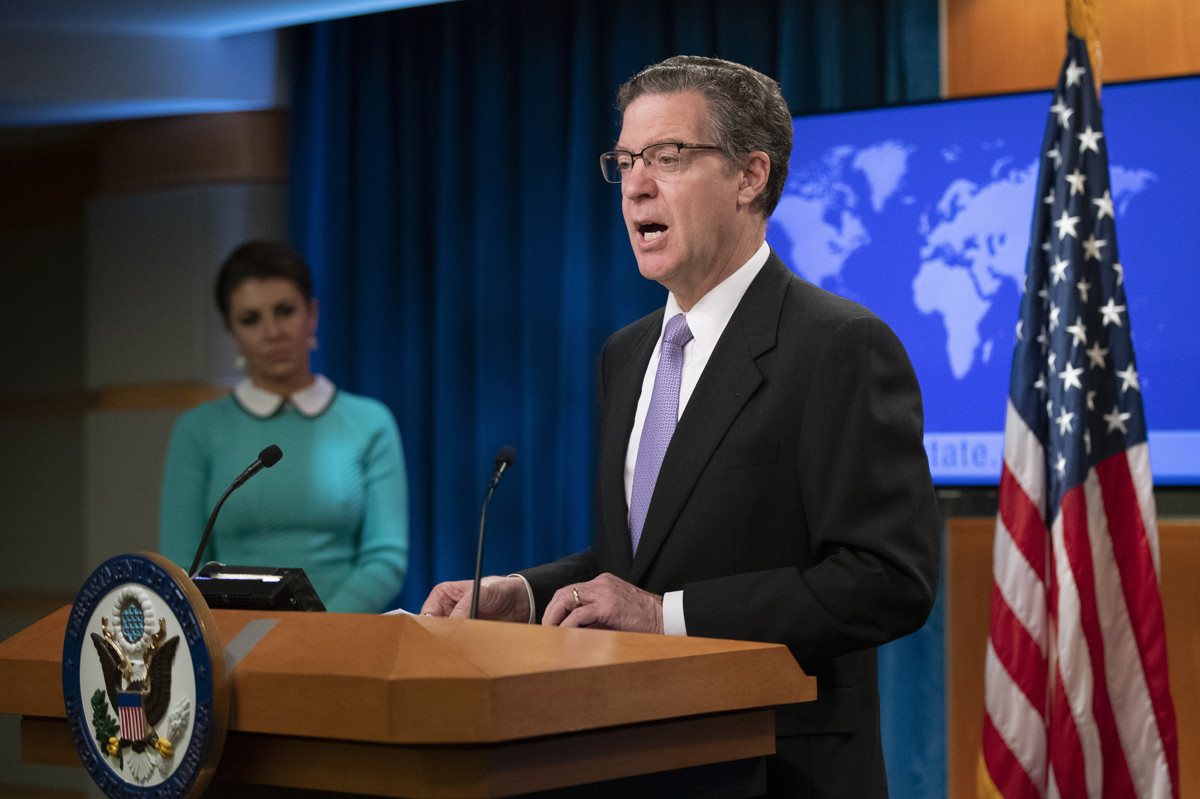
(TibetanReview.net, Jun22’19) – The United States has on Jun 21 condemned China for its “intense persecution” of religious faiths, releasing its 2018 Annual Report on International Religious Freedom with special focus on Xinjiang and referring to the conditions of Buddhists in Tibet as well as the followers of other faiths in other parts of the People’s Republic of China (PRC).
This year’s report departed from its predecessors by dedicating a separate section of its China chapter to Xinjiang. Secretary of State Mike Pompeo has said the purpose was to document “the staggering scope of religious freedom abuses” in the region. He has said governments that persecute religious believers should not be able to get away with such actions without consequences.
“Since April 2017, the government detained at least 800,000 and up to possibly more than 2 million Uygurs, ethnic Kazakhs and members of other Muslim groups, mostly Chinese citizens, in specially built or converted detention facilities in Xinjiang,” the report was quoted as saying.
Past reports had singled out only Tibet, Hong Kong and Macau with separate sections.
Pompeo’s remarks came as US Vice President Mike Pence postponed a speech that was expected to criticise China’s human rights record, noted scmp.com Jun 22. It said Pence’s speech, originally expected to be delivered on Jun 24, was delayed because of “progress in conversations” between US President Donald Trump and his Chinese counterpart, Xi Jinping.
“The Chinese Communist Party has exhibited extreme hostility to all religious faiths since its founding,” Pompeo was quoted as saying during his Jun 21 press conference. “In China, the intense persecution of many faiths: Falun Gong practitioners, Christians, and Tibetan Buddhism among them, is the norm.”
In the Tibet Autonomous Region (TAR) and other Tibetan areas of the PRC, authorities continued to engage in “widespread interference in religious practices,” especially in Tibetan Buddhist monasteries and nunneries, the report said, noting reports of forced disappearance, torture, physical abuse, prolonged detention without trial, and arrests of individuals due to their religious practices.
The report said the government exerted control over religion and restricted activities and personal freedom of religious adherents when it perceived them as threatening state or ruling Chinese Communist Party (CCP) interests, while only state-sanctioned religious groups were permitted to hold worship services.
And US Ambassador-at-Large for International Religious Freedom Sam Brownback has said China had “declared war on faith,” noting “increasing Chinese government abuse of believers of nearly all faiths and from all parts of the mainland.”
He has condemned the internment camps in Xinjiang as facilities “designed to strip away the culture, identity, and faith of these religious communities,” interference in Tibetan Buddhist practices—including in the selection, educations, and veneration of Tibetan Buddhist lamas—and repression of Christians, as well as the “forcible organ harvesting” of religious prisoners of conscience.
Referring to “increasing Chinese government abuse of believers of nearly all faiths and from all parts of the mainland,” he has warned China: “This will have consequences on your standing at home and around the world.”
The report also accused Chinese authorities of continually harassing and intimidating religious leaders to dissuade them from speaking with US officials. In one instance, the Chinese authorities “interrupted a meeting between the abbot of a prominent Tibetan Buddhist monastery and the Chengdu Consul General, quickly removing the abbot from the scene,” the report said.
In November last year, Pompeo redesignated China as a “Country of Particular Concern” under the International Religious Freedom Act of 1998, an annually reviewed status China has had since 1999.





